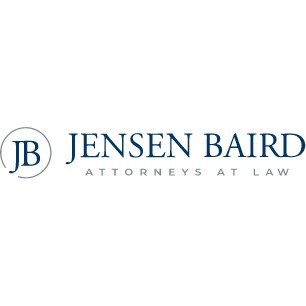Best Job Discrimination Lawyers in Kennebunk
Share your needs with us, get contacted by law firms.
Free. Takes 2 min.
List of the best lawyers in Kennebunk, United States
About Job Discrimination Law in Kennebunk, United States
Job discrimination law helps to protect employees from being negatively treated in the workplace due to their gender, age, race, nationality, disability, sexual orientation, religion, or other legally protected characteristics. In Kennebunk, United States, this law is safeguarded federally by entities such as the Equal Employment Opportunity Commission (EEOC) and locally by the Maine Human Rights Commission (MHRC).
Why You May Need a Lawyer
Employment discrimination can be difficult to prove. You might need a lawyer if you have been unfairly dismissed, demoted, denied training, harassed or discriminated against in any way at your workplace based on your protected characteristic. A lawyer can assist you in documenting evidence, filing formal complaints, and representing you in negotiations or court proceedings."
Local Laws Overview
In Kennebunk and throughout Maine, the Maine Human Rights Act makes it illegal for an employer to discriminate against job applicants or employees. All employers in the state who have at least 15 employees are covered under this law. The Maine Human Rights Act specifically protects against discrimination based on race, color, sex, sexual orientation, age, physical or mental disability, religion, ancestry, national origin, and whistleblower activity.
Frequently Asked Questions
What qualifies as job discrimination?
Job discrimination is any unfair treatment in a workplace based on a person's protected characteristics. This can involve hiring, firing, promotions, job duties, pay, and any other terms or conditions of employment.
How can I prove job discrimination?
A direct evidence such as statements by supervisors or policies showing a discriminatory motive can be a proof. You can also use indirect evidence like statistical evidence showing a pattern of discrimination, or comparative evidence showing that employees of a different race, age, gender, etc. were treated favorably.
What can I do if I am a victim of job discrimination?
You can file a complaint with the Equal Employment Opportunity Commission (EEOC) or the Maine Human Rights Commission (MHRC). It is also advisable to consult with an attorney experienced in employment discrimination.
How long do I have to file a complaint?
In Maine, you have 300 days from the day the discrimination took place to file a charge with the EEOC. The MHRC requires filing within six months of the most recent act of discrimination.
Can my employer retaliate against me for filing a complaint?
No, retaliation for reporting discrimination, filing a complaint, or participating in an investigation is illegal under federal and state laws.
Additional Resources
The Maine Human Rights Commission (MHRC) and the Equal Employment Opportunity Commission (EEOC) have valuable resources available on their websites. Other local organizations like Maine's Bureau of Labor Education and Pine Tree Legal Assistance can also be of assistance.
Next Steps
If you believe you have been a victim of job discrimination, it could be beneficial to consult with an attorney knowledgeable in employment law. They can guide you through the process of filing a discrimination charge and potentially pursuing a lawsuit. Keeping a detailed record of all incidents, including dates, people involved, and what happened, can be important evidence.
Lawzana helps you find the best lawyers and law firms in Kennebunk through a curated and pre-screened list of qualified legal professionals. Our platform offers rankings and detailed profiles of attorneys and law firms, allowing you to compare based on practice areas, including Job Discrimination, experience, and client feedback.
Each profile includes a description of the firm's areas of practice, client reviews, team members and partners, year of establishment, spoken languages, office locations, contact information, social media presence, and any published articles or resources. Most firms on our platform speak English and are experienced in both local and international legal matters.
Get a quote from top-rated law firms in Kennebunk, United States — quickly, securely, and without unnecessary hassle.
Disclaimer:
The information provided on this page is for general informational purposes only and does not constitute legal advice. While we strive to ensure the accuracy and relevance of the content, legal information may change over time, and interpretations of the law can vary. You should always consult with a qualified legal professional for advice specific to your situation.
We disclaim all liability for actions taken or not taken based on the content of this page. If you believe any information is incorrect or outdated, please contact us, and we will review and update it where appropriate.








